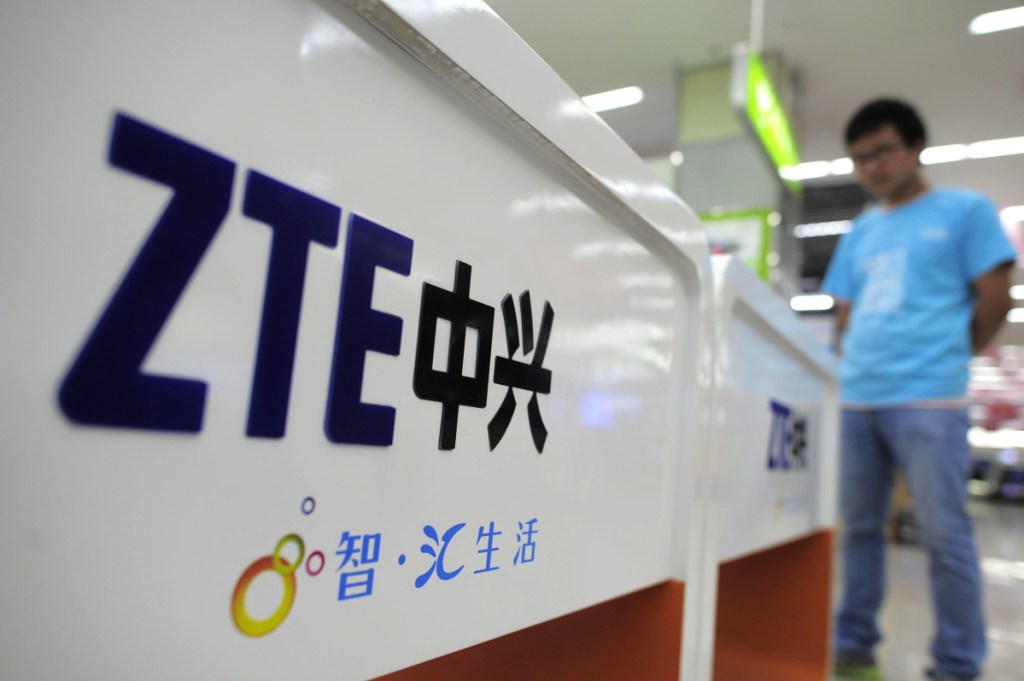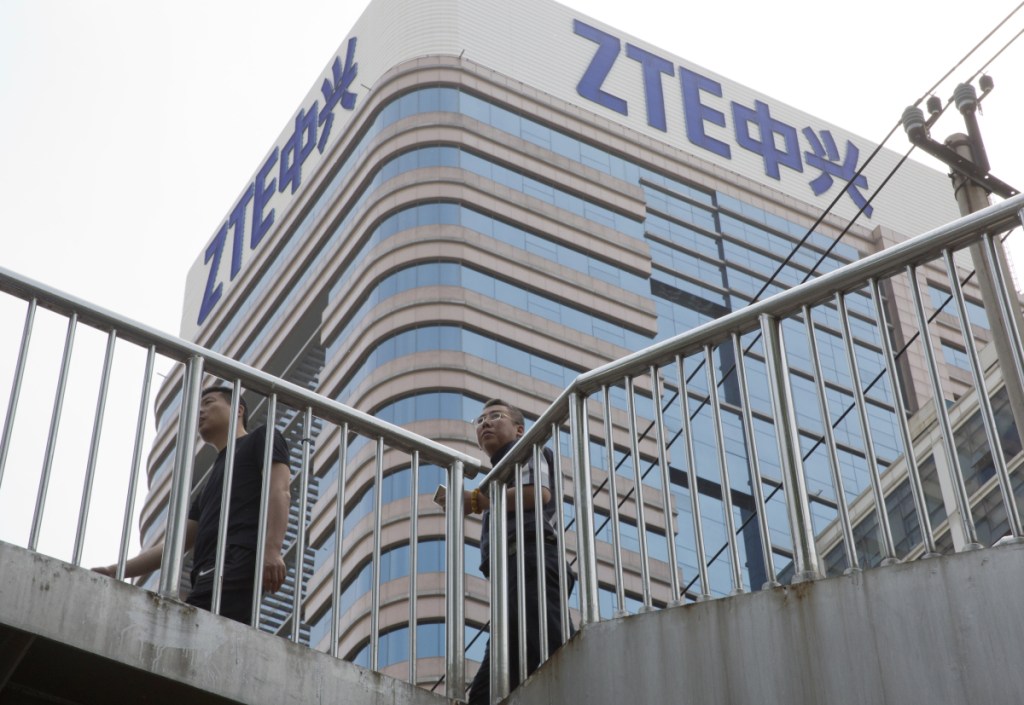President Trump’s surprising promise Sunday to help bring Chinese telecom giant ZTE back from the brink of collapse undercuts top law enforcement and intelligence officials, who have warned for years that the company’s products could be used for cyber-espionage in the United States.
ZTE has close ties with China’s government, and U.S. officials have raised concerns that its phones and other devices could be used as surveillance tools against Americans.
Lawmakers immediately noted the contradiction. “Our intelligence agencies have warned that ZTE technology and phones pose a major cybersecurity threat,” Rep. Adam Schiff of California, the ranking Democrat on the House Intelligence Committee, tweeted at Trump yesterday. “You should care more about our national security than Chinese jobs.”
As Sen. Marco Rubio, R-Fla., put it in a tweet this morning, the “problem with ZTE isn’t jobs & trade, it’s national security & espionage.”
In congressional testimony this year, the head of the FBI and other intelligence chiefs urged American citizens to steer clear of products from ZTE and its Chinese rival Huawei. And just two weeks ago, the Pentagon banned the companies’ phones from being sold on military bases, saying they “may pose an unacceptable risk to the department’s personnel, information and mission.”
As the Washington Post reported, the Commerce Department last month said it would bar U.S. firms for seven years from exporting critical microchips and other parts to ZTE, as punishment for violating a sanctions settlement over illegal shipments to Iran and North Korea. On Wednesday, ZTE said it would shut down its global business but was “actively communicating with the relevant U.S. government departments in order to facilitate the (order’s) modification or reversal.”
Trump appeared receptive to the idea, sending shockwaves through the national security establishment by tweeting Sunday that he and Chinese President Xi Jinping were working to give ZTE “a way back into business, fast.”
“It’s striking that he is overruling the judgment of his own national security apparatus in order to help a Chinese company succeed,” said Abraham Denmark, director of the Asia Program at the Woodrow Wilson International Center for Scholars. “There’s often tension between economic issues and national security issues, and this tweet seems to suggest in this case the economic issues won out.”
Adam Segal, director of the Digital and Cyberspace Policy Program at the Council on Foreign Relations, called Trump’s instruction to his Commerce Department to assist ZTE “highly unusual, given the intelligence community has given several unambiguous warnings about using ZTE and Huawei products.”
When intelligence officials return to work this week, “I would expect to see some pushback,” Segal predicted, “with officials stressing that commercial sanctions might be modified but ZTE should stay out of U.S. networks.”
Lawmakers, too, may try to intervene.
After all, it was congressional investigators who sounded the alarm about possible cyberespionage by ZTE and Huawei in 2012, after an 11-month probe by the House Intelligence Committee concluded that the companies were essentially arms of the Chinese government that could be used as conduits for spying on American citizens and companies. And Rubio, along with Sen. Tom Cotton, R-Ark., introduced a bill this year that would bar the U.S. government from buying or leasing telecommunications equipment from the companies over those concerns.
In February, FBI Director Chris Wray told the Senate Intelligence Committee that Americans shouldn’t use ZTE or Huawei products or services and thus “gain positions of power inside our telecommunications networks,” Wray testified. “That provides the capacity to exert pressure or control over our telecommunications infrastructure. It provides the capacity to maliciously modify or steal information. And it provides the capacity to conduct undetected espionage.”
But not everyone is as worried.
Sascha Segan, a mobile analyst at PC Magazine, criticized the intelligence community for failing to detail the exact reasoning behind the alleged threat posed by ZTE, which rejects the idea its products are a security risk for Americans.
“U.S. intelligence chiefs paint a dark picture of ZTE and Huawei, which they claim are Chinese spying operations, but we haven’t seen a shred of actual evidence that either company’s phones are dangerous to Americans in any way,” he wrote in a February article. “The intelligence officials disparaging these companies have also given no evidence and been careful not to state that the handsets themselves are a clear and present threat – just that they have an animus against these companies.”
Copy the Story LinkSend questions/comments to the editors.




Success. Please wait for the page to reload. If the page does not reload within 5 seconds, please refresh the page.
Enter your email and password to access comments.
Hi, to comment on stories you must . This profile is in addition to your subscription and website login.
Already have a commenting profile? .
Invalid username/password.
Please check your email to confirm and complete your registration.
Only subscribers are eligible to post comments. Please subscribe or login first for digital access. Here’s why.
Use the form below to reset your password. When you've submitted your account email, we will send an email with a reset code.